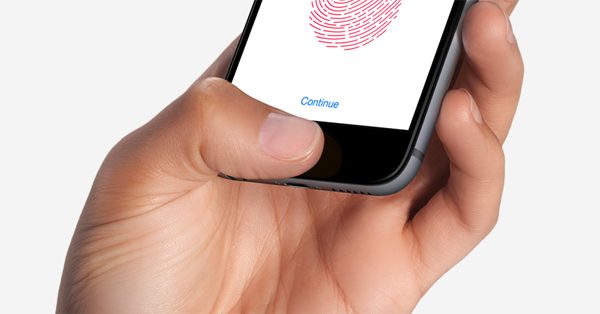Apple’s fingerprint unlock technology pretty much throws the Fifth Amendment right out the window. A Circuit Judge in Virginia has ruled that the Fifth Amendment does not protect fingerprints, which has raised concerns about privacy implications this will have on biometrically protected devices, including the newer iPhones and iPads.
This trivial situation has surfaced because of a case that involves David Baust, who is accused of strangling his girlfriend. Prosecutors believe that there could be a video of that incident stored in Baust’s iPhone, which he used to record the felony, and requested the judge to force the defendant to unlock the phone.

The Fifth Amendment is very clear on this matter, stating that "no person shall be compelled in any criminal case to be a witness against himself," thereby the law cannot force a criminal defendant to divulge memorized information, such as passwords or passcodes. However, fingerprints are not covered in this.
According to Judge Steven C. Frucci who passed this ruling, giving police a fingerprint is similar to providing a DNA or handwriting sample or an actual key, which is permitted by law. However a passcode would require divulging memorized information, which the law cannot enforce, and protects against.
If Baust’s iPhone is passcode or password protected, he will not be required by law to unlock the device, but if it is protected by a fingerprint, the Judge’s ruling clearly lays out what needs to be done.
We’re not sure if Baust’s iPhone is equipped with Touch ID or not, but if it is, it is very likely that the device may be passcode protected at this point. Touch ID reverts to a passcode after 48-hours of dis-use, a restart, or three failed fingerprint entries, and the device has been in police custody for quite some time now raising the probability of it being passcode protected.

It is interesting to note that back when Touch ID was launched by Apple, there were concerns about the technology trumping the right of citizens to take the Fifth Amendment in criminal, civil, formal or even informal proceedings.
What’s your opinion on the fingerprint tech in context with the case, or without it in general? Leave your thoughts in the comments section below.
(via: MacRumors)
You can follow us on Twitter, add us to your circle on Google+ or like our Facebook page to keep yourself updated on all the latest from Microsoft, Google, Apple and the web.

